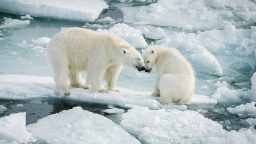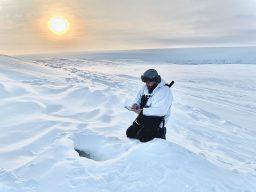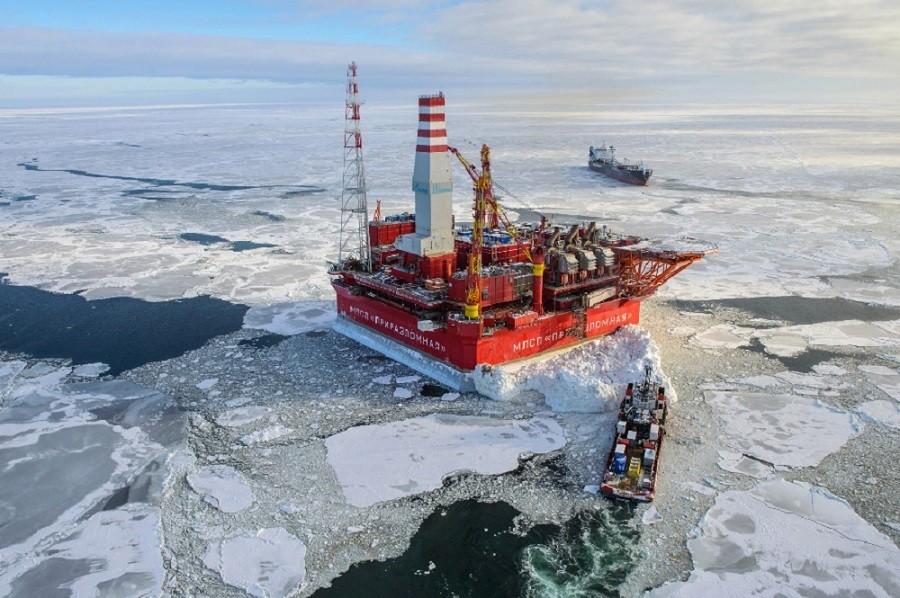
The ice-resistant stationary platform “Prirazlomnaya” in the Pechora Sea
The wealth of the Arctic
The Arctic has always been the focus of the interests of different countries. The region has been subjected to geopolitical pressure more than once, but the Arctic as such did not represent any economic interest. Even in the long term, it was difficult to predict anything.
Nevertheless, in the new millennium, interest in the Arctic is increasing, and exponentially, which makes this region actively discussed in geopolitical terms, as well as economically profitable in the already forecasted medium term.
So far, the Arctic is the only region on the planet that remains undeveloped and only partially studied, but at the same time economic activity is carried out there. There are only 4.2 million people living here, who are citizens of Russia, Canada, the USA, Denmark, Norway and other countries. The low development of the region, coupled with a small population, by definition makes it resource-rich.
Despite the harsh climatic conditions, 430 of the 25,000 species of fish and jawless vertebrates described on Earth live in the Arctic, which form the basis of the ecosystem of the region.
Taking into account recent geophysical research, 20% of all world mineral reserves are located in the Arctic, which are now actively used by the global economy as a whole. In fact, mining is the main reason for the growing conflict of interests in the Arctic. Moreover, this interest is shown not only by the circumpolar countries, but also by other non-Arctic states.
So, back in 2009, the Arctic region’s exploration reserves were estimated at 83 billion barrels of oil and 44 trillion cubic meters of natural gas, most of which lie at a depth of less than 500 meters. Who will legally own these resources will be determined by geophysical research, which is currently actively conducted in the Arctic. But it is always possible to agree on their joint development, which fuels the interest of non-Arctic countries.
Distribution of the spheres of influence of countries in the Arctic
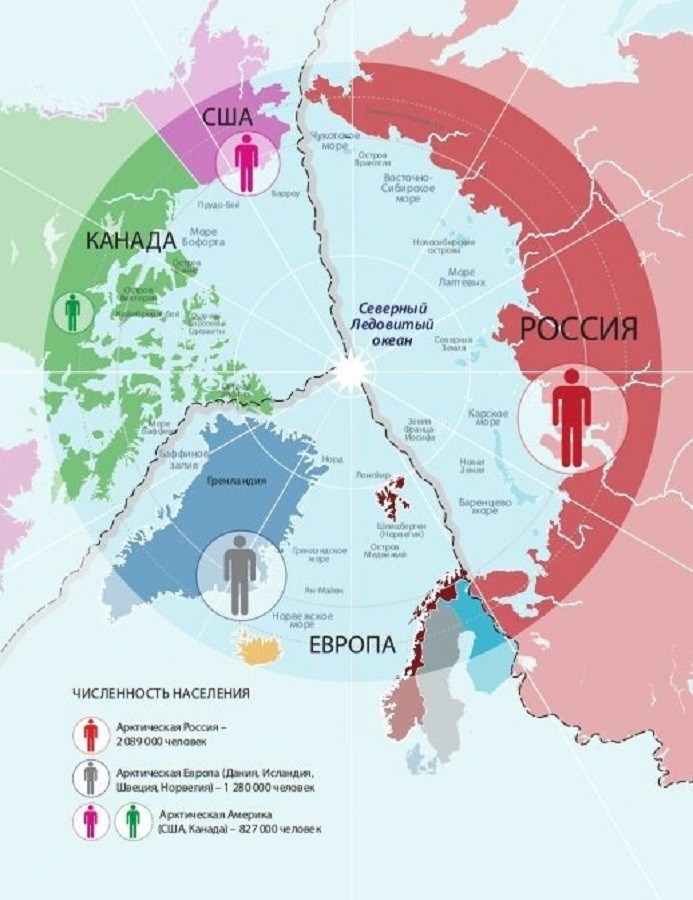
The Arctic is rich in biological resources, which, for the sake of geophysical features, are distributed among the circumpolar countries. For example, biological resources (fish, marine animals and others) are common to neighboring countries, which requires coordination and common decision-making on their use.
China sees a potential “pothole” in the Arctic, which will be able to provide the necessary amount of minerals, thereby satisfying the growing economic needs of this country every day. And that is why China is actively increasing its influence in this region and developing Arctic management systems. In addition, in partnership with Russia and France, China participates in the implementation of the Yamal LNG project, where it has a 29.9% stake.
But that’s not all! In addition to all of the above, China is actively developing the extraction of Citronen lead-zinc ores in Greenland (Denmark). This not only irritates local residents due to the large influx of Chinese labor, but also arouses geopolitical interest from the United States.
China is investing in Arctic projects for a reason. Today, 90% of Chinese exports are carried out by sea, and recent events in the global economy have shown that no one can guarantee the delivery of goods from the manufacturer to the consumer now. The recent unintentional blocking of the Suez Canal, which caused the complete collapse of the world economy, has revealed to us a new threat to our time.
That is why China is already officially considering and analyzing the potential of the Arctic transport corridor, which should become the main maritime trade route between Asia and Europe.
Interests of other countries
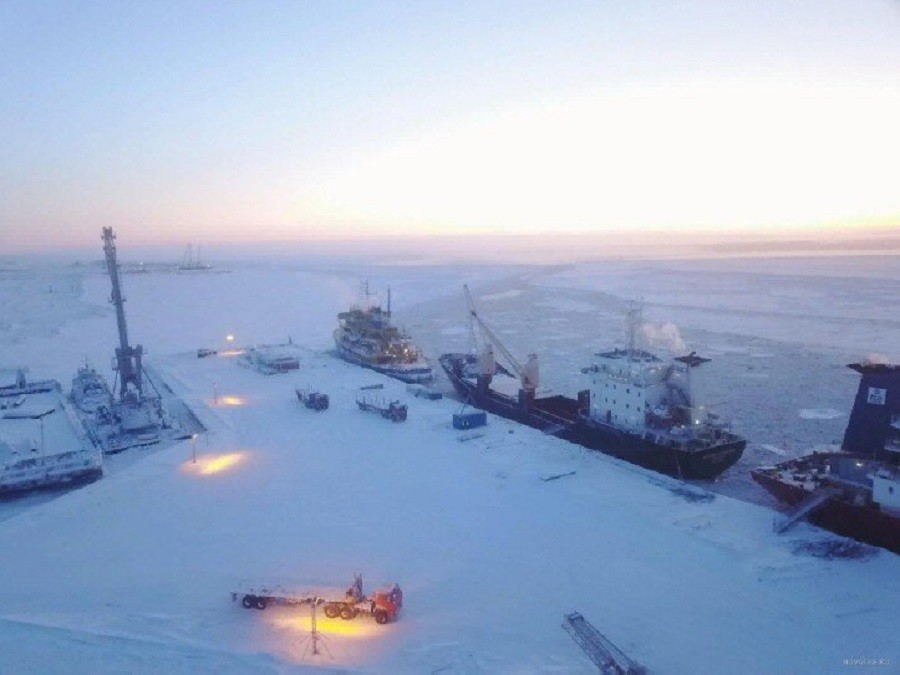
The Arctic LNG-2 project
India, which in principle has nothing to do with the Arctic, is considering the possibility of jointly developing energy deposits with Russia, which in the future should solve the problems of energy shortage in the country, making it energy self-sufficient.
Japan and South Korea are purely energy–deficient states, and it is also extremely important for them to take a bite out of the pie. For South Korea, with its export-oriented economy, the development of the Arctic is a gold mine in terms of building ice tankers and bulk carriers that will run along the Transarctic route.
For Japan, Arctic resources are a solution to the issue of the country’s economy’s survival in the medium term, and its Arctic interest is vital. The most important thing is to diversify the supply of rare earth metals at the expense of Arctic resources. China has established a monopoly in this regard, which critically affects the elementary base of Japan.
The European Union considers the Arctic to be a new global area of prosperity and constructive international cooperation. This is especially the opinion of Germany, where the necessary infrastructure has already been created in the north of the country for the acceptance of LNG from Russia, and now there is a potential opportunity to become a country distributing consumer goods throughout the European Union.
It is not for nothing that Germany is lobbying with all its might and with all the methods at its disposal to promote the Nord Stream 2 project. This gas pipeline is of strategic interest, including for the Arctic project.
Russia claims almost 70% of all Arctic resources, and at the same time has the most powerful Arctic military potential and the most powerful icebreaking fleet in the world. This arrangement cannot suit the United States. After all, this is the complete independence of the maritime transport route from the influence of the United States, and the huge Arctic resources will begin to determine the economic development of the world in the near future.
Today, the Arctic is becoming a place of confrontation between the powers for their economic well-being. This is mainly reflected in the increased military presence in the Arctic region. Naturally, we have also begun to increase our military presence in this region. The battle for the Arctic has begun…
By Alexey Kochetov

